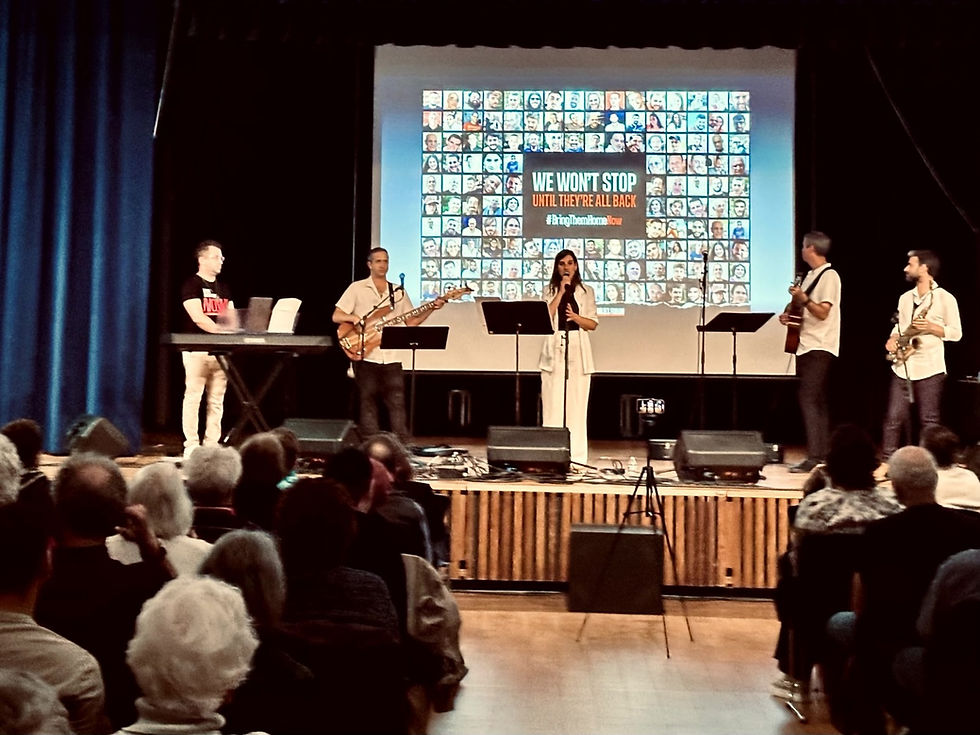Pioneering New Ways of Remembering for a Unique Holocaust Remembrance Day
- Mirit Sulema

- Apr 29, 2020
- 3 min read
Updated: Jan 7, 2021
In a regular year for Dror Israel, one of the major educational highlights is the Holocaust Study trip to Poland for some 800 teens, which takes place each March after a three month preparation period for all the participants. This year, the Ministry of Educational cancelled the trip, only a week before it was meant to begin. We were left stunned and with a major dilemma – how can we educate towards Holocaust remembrance this year without one of the foundation stones of our program, and with the students who worked so hard and learned so much to prepare for their trips?

On a regular Holocaust Commemoration day in Israel, society comes together with ceremonies in every city and village, at schools and workplaces. Dror Israel brings the travelling Rebellion of Hope exhibit to public places around the country, with some 20,000 visitors. The exhibits and events were planned and scheduled, with educational teams in place throughout the country, when in March we understood that none of the activity would take place as planned.
A group of senior Dror Israel educators came together (virtually) to develop a new and creative plan to educate towards Holocaust remembrance without any gatherings or human contact.
Many teachers contacted us for help writing a memorable and meaningful online lesson plan. We responded, and some 1,000 teachers taught it to some 3,500 students – with excellent feedback.
Special thought was given to the schools whose trips to Poland were cancelled – what kind of meaningful experience could possibly replace a week-long journey to see concentration camps, sites of ghettoes and former Jewish communities with their own eyes? Counselors decided to give the students the responsibility of being the teachers: they would record video or audio podcasts with the results of a specific research project, or an interview with a survivor. Over 50 podcasts were recorded and uploaded. One of the students, Yuval Ohana, 17 years old, recorded her grandfather’s story. When asked how her family responded, she said, “They wrote to me that they’re very proud of me and it’s a very important project with an amazing message. My grandfather was moved – we talked on the phone and he took out an album with photos of his father. My grandmother was also really moved and said she had tears in her eyes.”
Watch Yuval's Podcast (Hebrew):
We also initiated a new online project in which people gathered via Zoom to hear stories of families and survivors, told by their children and grandchildren. Over 30 of these meetings took place, with some 400 participants. “It’s interesting that precisely during these times, when people can’t get close to one another, we found ourselves sitting and listening to grandma’s story, and all of our relatives were there,” says Adi Malka (39), who told her family’s story to 30 people – some related to her and some not – including the story of Rabbi Haim Haviv, the head Rabbi of Thessaloniki during WWII.
Of course, the survivors themselves are having a particularly difficult time this year, with many of them isolated at home, and the virus having an especially hard toll on their age group. Dror Israel educators and participants went out on the eve of Holocaust Commemoration Day to distribute flowers and certificates of appreciation to survivors in their communities throughout the country. “The truth is that I didn’t anticipate how moving it was going to be. At some point, we ran out of flowers but still had survivors on our list, so we went to buy more flowers because we couldn’t possibly go to survivors’ homes with empty hands,” reports Hagar Michaeli (33) from Dror Israel’s Educators’ Kibbutz in Akko.




Comments